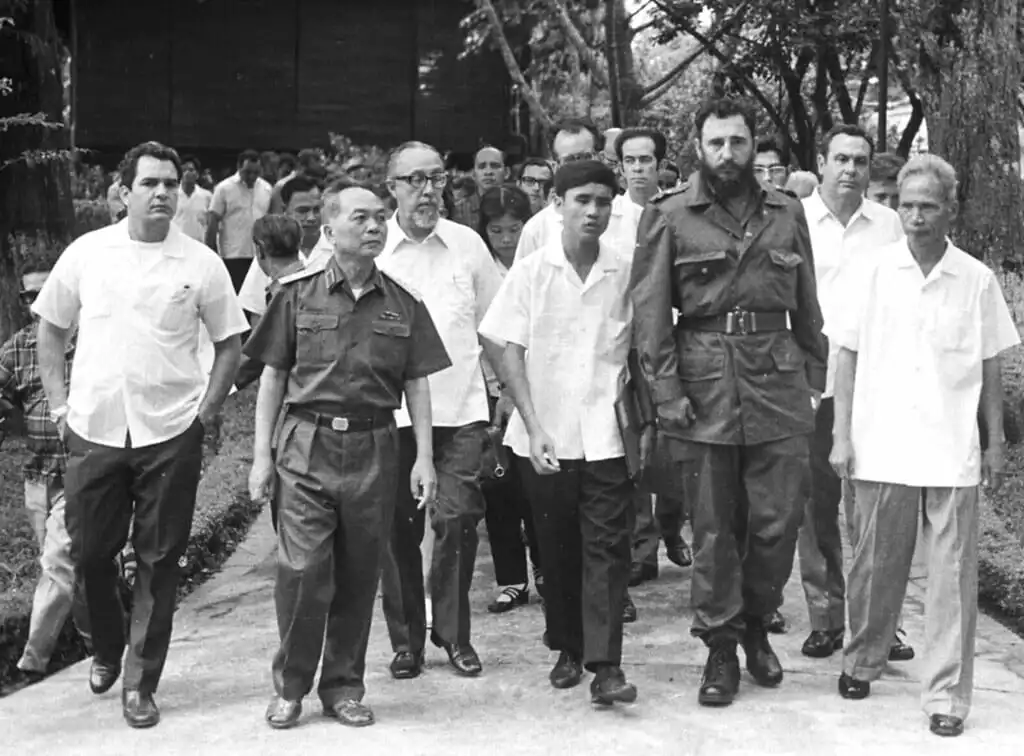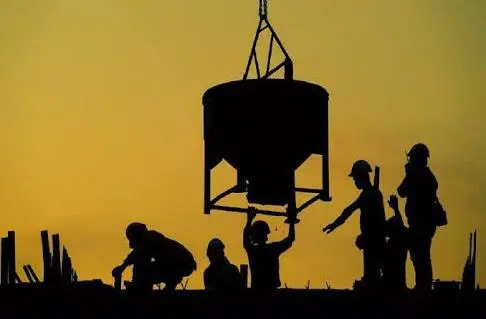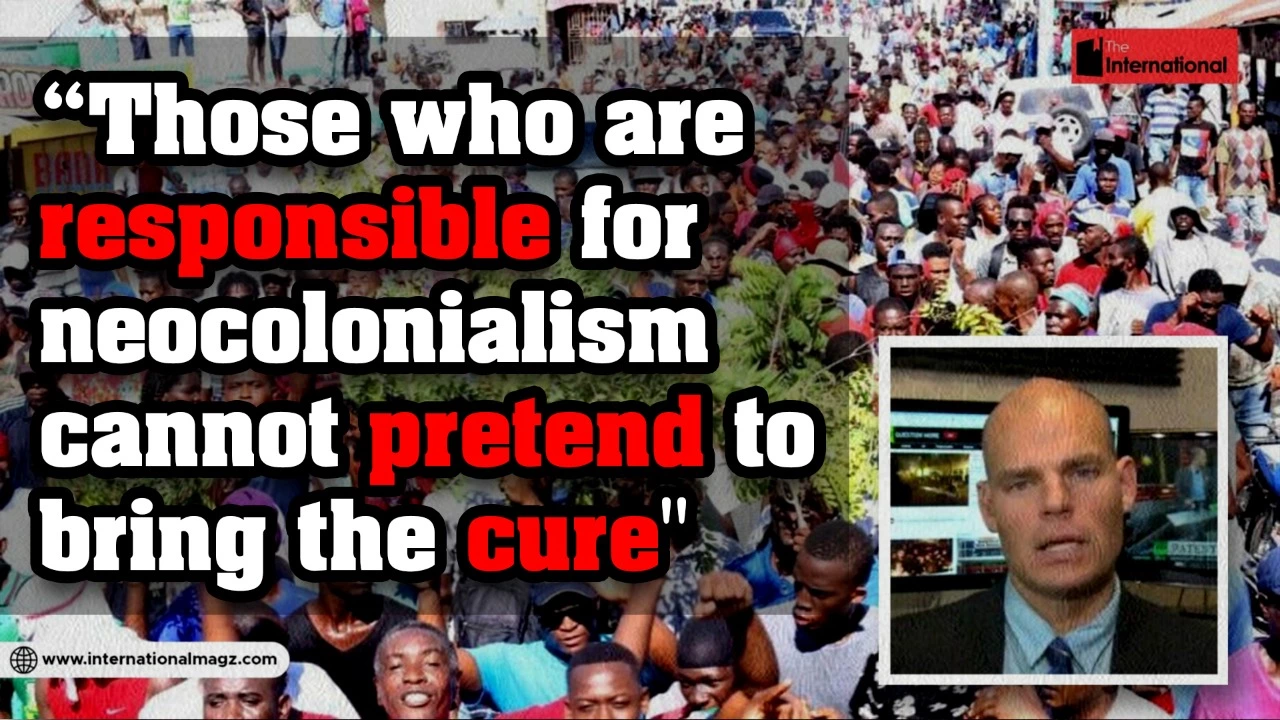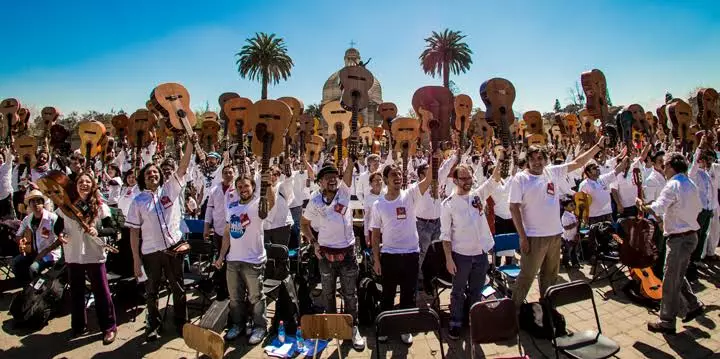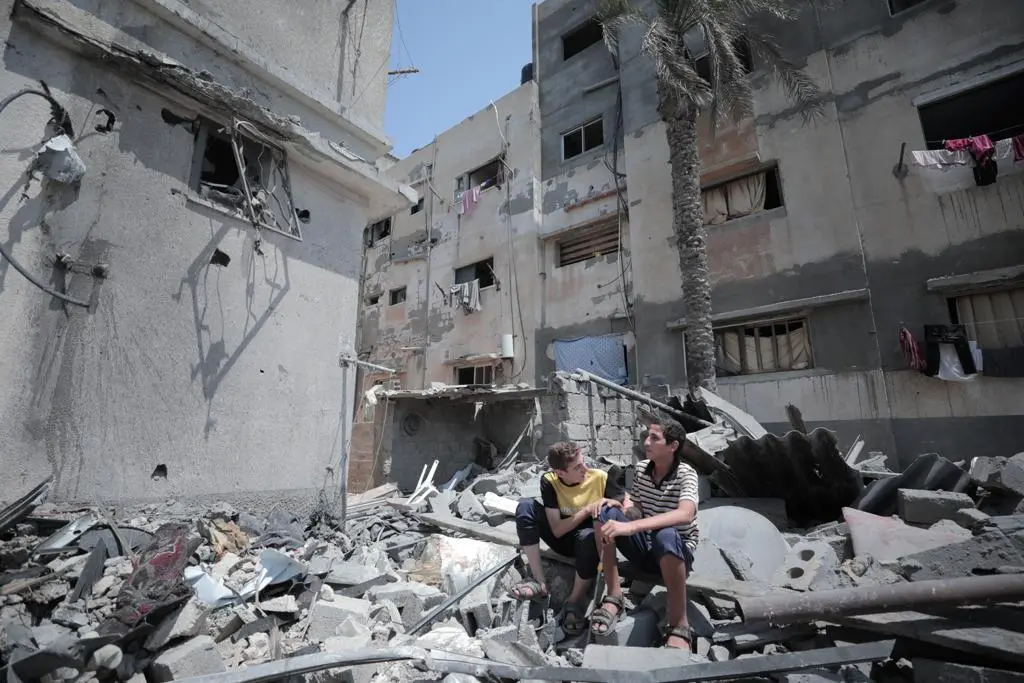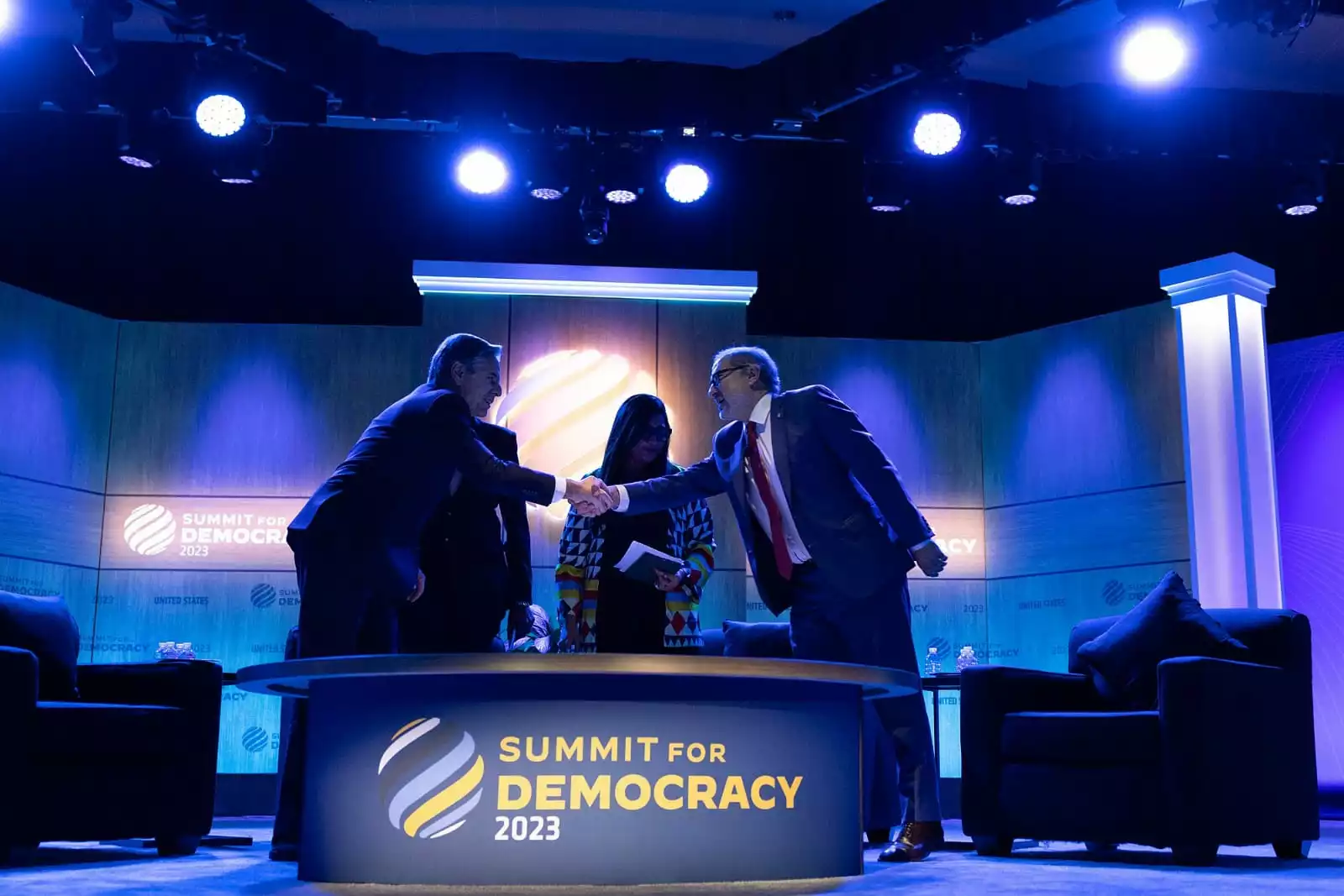Ho Chi Minh passed away in 1969, four years before Fidel Castro's first visit to Vietnam, but even death could not prevent the meeting between those two men who professed an immense friendship.
Political and military leaders, ministers, ambassadors, translators, journalists, and others who had the opportunity to speak with them or witness their expressions about each other, affirm that their points of view were so similar that they transcended mere physical contact.
Their writings and speeches also reflected a deep mutual respect and admiration, both for each other and for their peoples.
In the first of his three visits to Vietnam (September 12-17, 1973), Fidel Castro mentioned Ho Chi Minh in all his public appearances. And in his conversations with Vietnamese leaders, according to their accounts, the same thing happened.
A few hours after arriving in Hanoi, Fidel toured the places where Uncle Ho worked and lived during his last days. One of them, perhaps the most endearing, was the small house in which the Vietnamese president preferred to live instead of the sumptuous palace that he was fully entitled to inhabit because of his position.
That colonial style palace was the private residence of the French governor and, after the independence of Vietnam (1954), the Party and the State considered it the right place to house the president.
But Ho Chi Minh did not feel at ease in the midst of so much space, and at his request, a small bamboo house was built on stilts near the palace.
There, on September 13, 1973, in the company of Prime Minister Pham Van Dong and General Vo Nguyen Giap, Fidel, deeply moved, noted the austerity with which the architect of Vietnam's independence lived.
In the first floor, the table where he used to meet with the Political Bureau. And in a bookshelf full of books, a must: "Guerrilla Warfare," by Che Guevara.
Upstairs, in the bedroom, the ascetic and neat little bed where the hero said goodbye to who knows how many sleepless nights.
In a simple wooden closet, the sandals and a few traditional suits. And on a small table, the last copies of the newspaper Nhan Dan (The People), a fan and an alarm clock.
Next to one of the windows, the old armchair where he used to read and meditate on the present and the future of a country that had been fighting for its independence for hundreds of years... How many times he must have dreamed there of a Vietnam ten times more beautiful!
Very close to the little wooden house there is another one of solid masonry where the leaders of the country advised Ho Chi Minh to move in the times of the US bombing of Hanoi.
In one of the rooms, there is a table with ten chairs, and on one wall, a large map of Vietnam with markings on the course of the war.

There, General Giap explained to Fidel that the last flags and signs reflected the situation at the time of Ho Chi Minh's death, and updated him on how things were going at that time. The final victory was a scant 19 months away.
Fidel also visited the small lake next to the two houses. On ladders overlooking the still waters, Uncle Ho waved or clapped his hands to alert the fish that he was bringing them their daily food.
It is easy to imagine that the tour of those sacred places was a moment of spiritual reunion between the historical leaders of the two countries.
At the time of Fidel's visit, the remains of Ho Chi Minh were not yet resting in the mausoleum where they are today. The construction of the monument started ten days before his arrival and was inaugurated almost two years later, on August 29, 1975.
But the Cuban leader did not need more to carry in his chest a growing admiration for Ho Chi Minh.
After visiting war scenes in central Vietnam, talking with Vietnamese leaders for long hours, and foreseeing a victory that was "simply a matter of time," Fidel summed up his impressions of those days in a speech.
"We came to this heroic land with great admiration for the Vietnamese people and we will leave with even greater admiration. We are encouraged by their victories and by their extraordinary example," he said.

And he stressed that he was leaving with only one sorrow, "that of not having had the privilege of meeting President Ho Chi Minh in his lifetime, for whom we have so much admiration.”
However, something else consoled him. "We are compensated by having seen and known the Vietnamese people closely and seeing the reflections of his work, his teachings, his work, his education, his example, his heroism, his modesty in the Vietnamese people.”
Fidel Castro visited Vietnam again in 1995 and 2003. And always, before and after, he felt the same respect and admiration for the friend, the brother he could only meet on the path of ideas.
Cover Image Credit: By manhhai is licensed under CC BY 2.0.
Editor's Note:
The views and informations expressed in the article are solely those of the author and may or may not reflect the views of The International. We believe in providing a platform for a range of viewpoints from the left.
